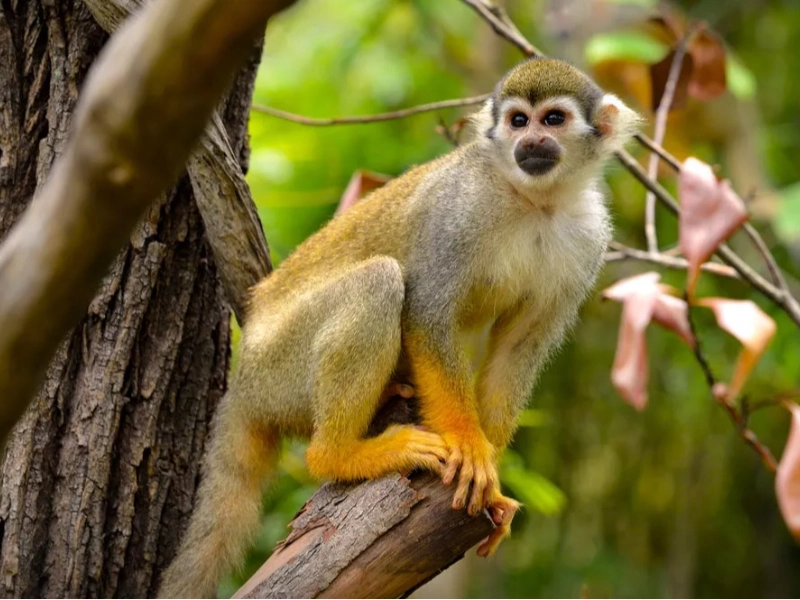13 of the Cutest Tree-Dwelling Animals in the World
Advertisement
Squirrel Monkey

Advertisement
Enchanting primitives found in the rich subtropical jungles of Central and South America are squirrel monkeys. With their vivid fur, expressive cheeks, and big, inquisitive eyes, these little monkeys—known for their active attitude and striking look—are distinguished. Not alone are they aesthetically pleasing; squirrel monkeys have the highest brain-to----body mass ratio of all monkey species, so they are also quite intelligent. Their social contacts and problem-solving skills depend much on this great degree of intelligence, which enables them to negotiate the complexity of life in big social groups.
Squirrel monkeys have complex social systems and interactions living in troops with up to 500 members. Their social behaviour is quite sophisticated; individuals create alliances and relationships necessary for their survival. Within these units, communication is crucial; squirrel monkeys use facial expressions, body language, and vocalisations to let one another know messages. This rich tapestry of communication allows them to coordinate group actions such food gathering or predator avoidance, hence preserving social cohesiveness. The capacity of each troop member to identify and recall unique individuals shows their cognitive capacity, which helps them negotiate the complex social network defining their life.
Mostly feeding on fruits, insects, and small animals, squirrel monkeys exhibit their flexibility in locating several food sources in their jungle environment. Their food is not only different but also reflects their opportunistic feeding behaviour. Renowned for their agility and ability in reaching fruiting branches and food extraction, they are known to graze in the canopy Often a social activity, this foraging behaviour involves group members searching and distributing food supplies together. The cooperative character of their foraging techniques emphasises the need of social ties for their existence.
Still, habitat deterioration and poaching pose serious hazards to squirrel monkeys, much as they do many other species living in tropical rainforests. Their habitats have been fragmented by deforestation for urban development, logging, and agriculture, therefore making it more difficult for them to locate food and cover. Furthermore endangering their populations are illicit hunting and the pet trade. Protection of these intelligent and social monkeys from additional decline depends on conservation initiatives. Essential first measures towards guaranteeing their existence are initiatives meant to protect their natural habitats, enforce anti-poaching rules, and increase public knowledge of the value of squirrel monkeys in their ecosystems.
All things considered, squirrel monkeys are not only lovely and clever animals but also rather important in their jungle habitats. Their interesting subjects of study are their sophisticated social structures, communication ability, and foraging activities. But the dangers they encounter underscore how urgently conservation initiatives must be undertaken to save their ecosystems and guarantee their survival. Understanding the ecological importance of squirrel monkeys and supporting their protection will help us to preserve these amazing animals as well as the great diversity of their rainforest habitats.
You May Like
Advertisement

